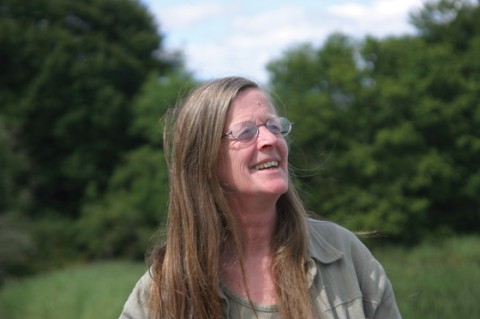Talking less, seeing more: An interview with Sara Maitland

Read the main article, in which Maitland describes her annual sojourn to the Sinai Desert.
Sara Maitland is a novelist and short story writer whose books include On Becoming a Fairy Godmother and Far North & Other Dark Tales. In 2008 she published A Book of Silence, about her exploration of a solitary, prayerful life. She lives in an isolated part of Scotland and takes retreatants to the Sinai Desert for periods of silence. She writes that she has "lived a very noisy life" and that the turn to silence is a surprise for her, but a welcome one.
In your pursuit of silence, you've moved farther and farther away from civilization. Where do you live now?
In 2006 I bought a ruined little house in western Galloway and rebuilt it. That's where I live now. As one friend said, "Nobody is going to just drop in, are they?" It is extremely isolated, and it is in an area which has the lowest population density in the United Kingdom. I love it. But lots of people don't. One friend said, "Oh God, Sara, only you would have 20-mile views of absolutely nothing!" But I saw it as a place where, at least potentially, I could be silent.




